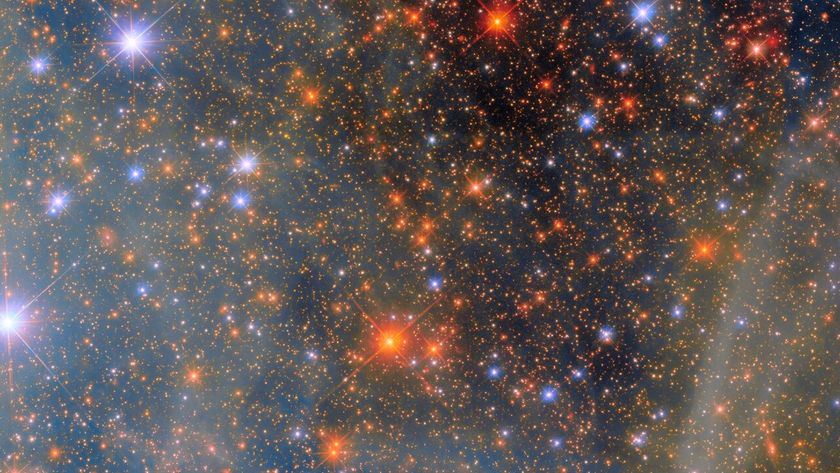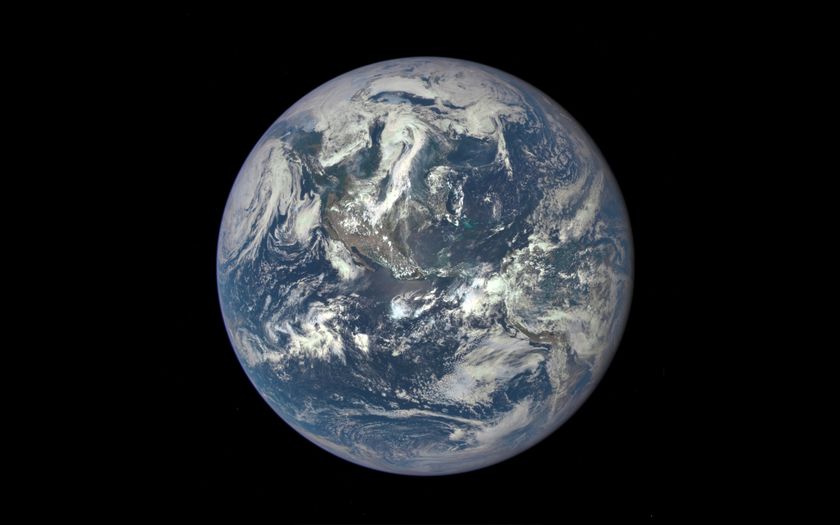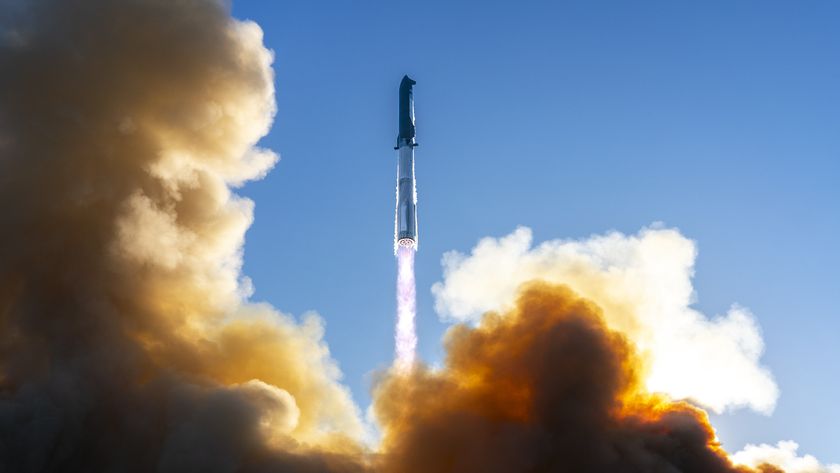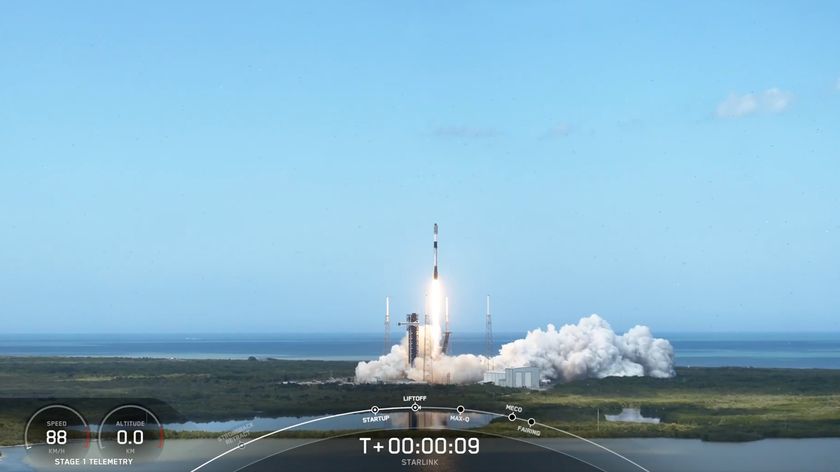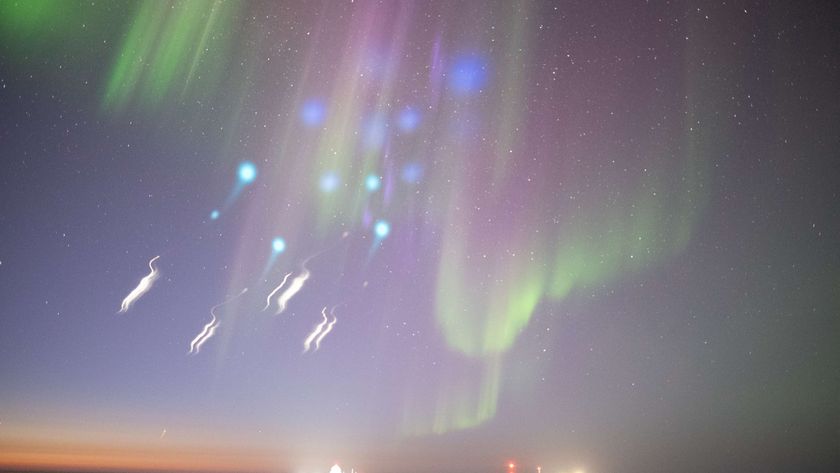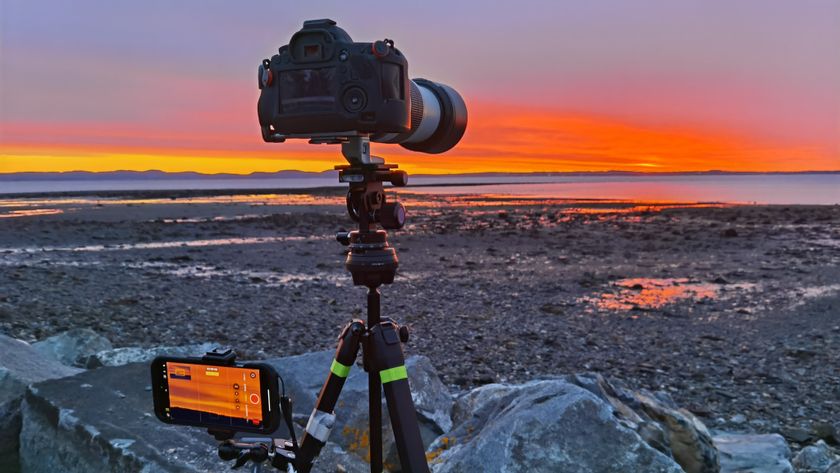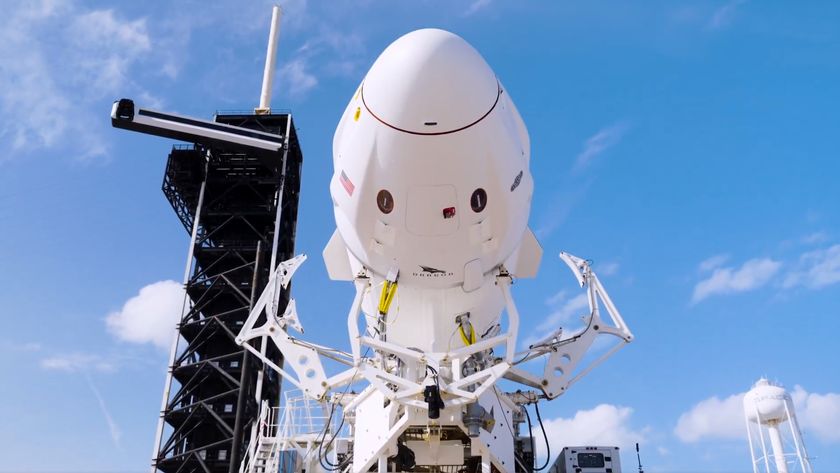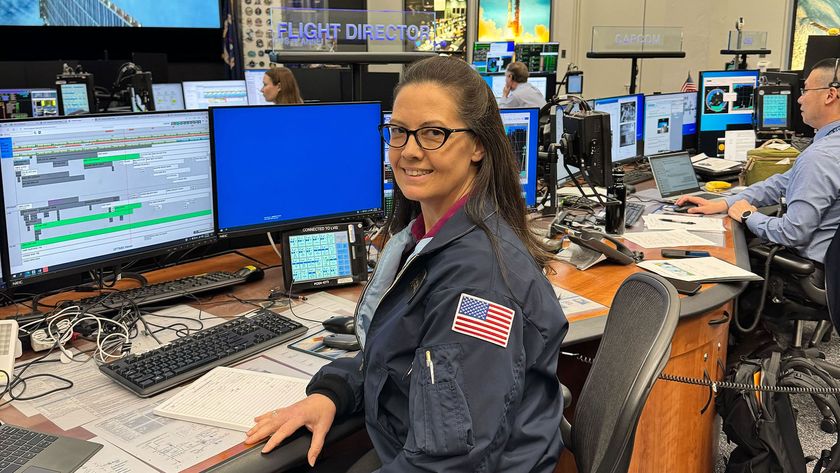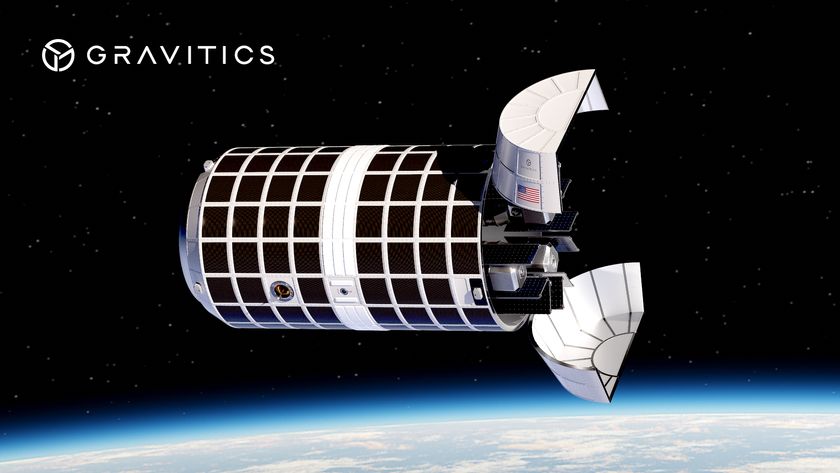Queen's Brian May Releases 'New Horizons' Single to Celebrate Epic Flyby
New Horizons' flyby of the distant object Ultima Thule now has its own soundtrack.
Astrophysicist Brian May, lead guitarist for the band Queen, released a new single called "New Horizons" just after midnight EST (0500 GMT) on New Year's Day to highlight the flyby, which peaked about 30 minutes later when the NASA spacecraft zoomed within 2,200 miles (3,500 kilometers) of Ultima Thule.
Ultima lies about 4 billion miles (6.4 billion km) from Earth and is now the farthest-flung celestial body ever to be visited by a spacecraft. [New Horizons at Ultima Thule: Full Coverage]
"This project made music in my head, and that's what you're hearing," May told reporters on Monday (Dec. 31).
"This mission is about human curiosity," he added. "It's about the need of humankind to go out and explore."
A brand-new single
After its famous flyby of Pluto in July 2015, New Horizons began an extended mission to visit another object in the Kuiper Belt, a band of icy rocks beyond Neptune's orbit. That second target is officially known as 2014 MU69, and has been nicknamed Ultima Thule by the mission team.
In visiting one of the most primitive and pristine objects in the solar system's dark outer reaches, New Horizons is probing the building blocks of planets, and the solar system's earliest history.
Get the Space.com Newsletter
Breaking space news, the latest updates on rocket launches, skywatching events and more!
The 22-mile-wide (35 km) Ultima Thule is the first small Kuiper Belt object ever visited. This makes the encounter incredibly intriguing, because "there is nothing more exciting in a world of exploration than going to a place about which you know nothing," May said. "The sky's the limit for what we could find out."
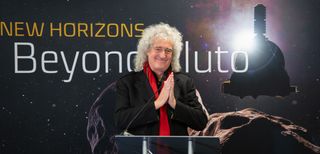
According to May, New Horizons principal investigator Alan Stern, a planetary scientist at the Southwest Research Institute in Colorado, called him up to request he write a song for the mission. May said he initially had some reservations.
"I thought this was going to be hard, because I can't think of anything that rhymes with Ultima Thule," he said.
May said that, as he considered the mission's goals, he began to hear in his head "the music of an object plummeting through space faster than anything before." He realized that, rather than trying to focus on the specifics of the mission itself, he should instead work to incorporate the spirit of exploration embodied by the spacecraft. [Destination Pluto: NASA's New Horizons Mission in Pictures]
May sat down with English lyricist Don Black, who penned iconic songs such as "Born Free," which May described as "a very forward-looking song." The next morning, May woke up with what he described as two simple verses in his inbox from Black — verses that inspired him and kicked him into action.
Tucked into the new single are quotes from the late cosmologist Stephen Hawking. The song both begins and concludes with those quotes, while a third is tucked in the middle.
May played his new single just after midnight on New Year's Day, when it became available on iTunes and various streaming platforms. A YouTube video that May said he and his colleagues made on a "shoestring budget" will also be available, and will also tell the story of the mission team.
"This became a song which is an anthem to human endeavor," May said. "The human race explores because it needs to know."
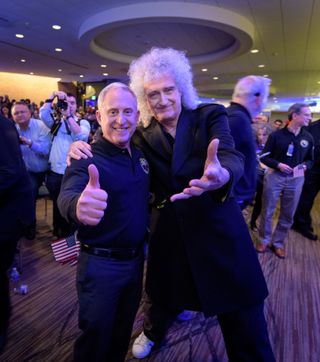
Art and science
Astronomy isn't a new field for May, who is a full member of the New Horizons team. Before he began his career with the classic-rock band Queen, May spent four years working in a postgraduate physics program. He said he left science because he didn't think he was good enough, and so turned his attention more to music. But his success with Queen didn't quite rid him of his childhood desire to become an astronomer.
"I always had that thing in me, that unfinished circle," he said.
May returned to London's Imperial College andreceived his Ph.D. in 2007. Since then, he has worked with stereoscopic images, helping to make three-dimensional scientific photographs. He was introduced as a New Horizons team member during the Pluto flyby in 2015.
One of the biggest boundaries May said he struggles with is the forced dichotomy between art and science. "I was brought up in school to believe that if you were a scientist, you could not be an artist," he said. "I've kind of fought [against] that all my life."
May has found many astronomers and astronauts to be musicians and artists. "It feels as though [human]kind is coming back around and putting the two halves of its existence back together," he said.
May said he feels as though his spirit is anchored in Victorian times, when people made no distinction between science and art. He compared the scientific process explored as part of the New Horizons team to the musical creation process, with everyone bringing something to the table.
"The greatest things happen when you're interacting with people," May said.
Previously, May had composed only one science-related song — "39," the story of a group of space explorers who return home to find that, during their one year of travel, a century had passed on Earth. However, after creating "New Horizons," he said that he feels ready to consider creating other science-related music.
"I think my head has moved," May said. "I think I'm in a place where I am ready to make space music now."
As for the new song, did he ever find something to rhyme with Ultima Thule?
"Do you think I would make such a foolie of myself?" May laughed.
Follow Nola Taylor Redd on Twitter @NolaTRedd. Follow uson Twitter@Spacedotcom and on Facebook. Original article on Space.com.
Join our Space Forums to keep talking space on the latest missions, night sky and more! And if you have a news tip, correction or comment, let us know at: community@space.com.

Nola Taylor Tillman is a contributing writer for Space.com. She loves all things space and astronomy-related, and enjoys the opportunity to learn more. She has a Bachelor’s degree in English and Astrophysics from Agnes Scott college and served as an intern at Sky & Telescope magazine. In her free time, she homeschools her four children. Follow her on Twitter at @NolaTRedd
